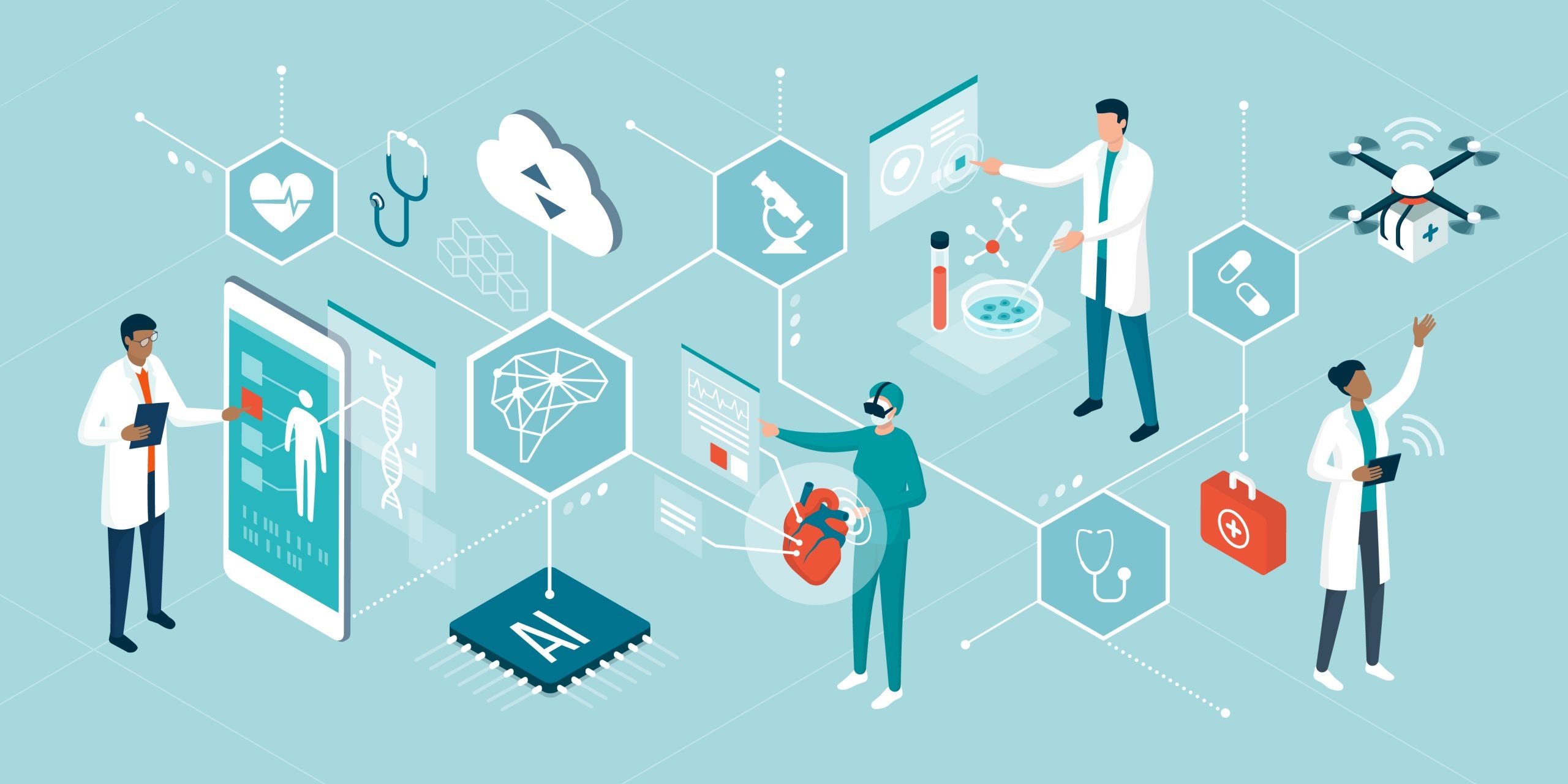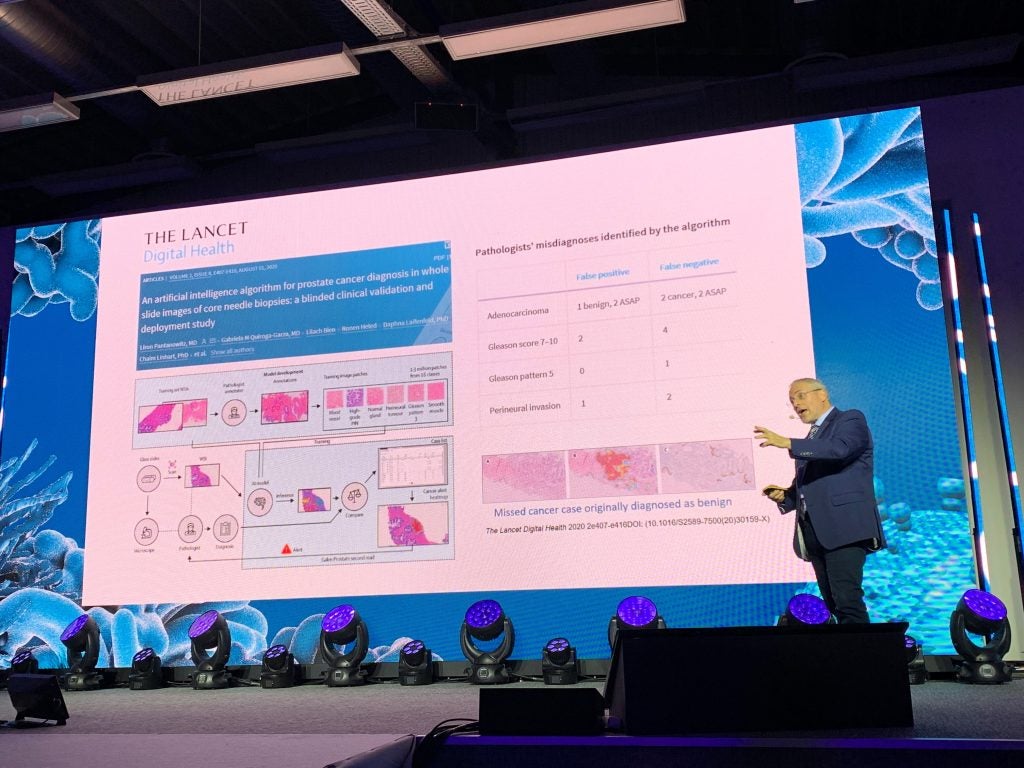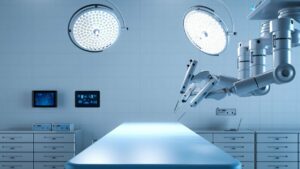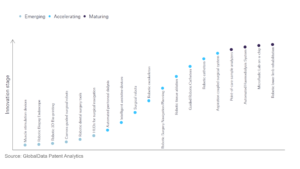
Experts in the biotech and medtech industries descended upon Europe’s geographical centre last week to discuss all things life sciences. A common theme, as Medical Device Network found out, was that automation – in particular, artificial intelligence (AI) – deserves its place in the spotlight as a pillar of the future of health.
The Life Sciences Baltics 2023 conference was held in Vilnius, Lithuania on 20 and 21 September. Much of the diverse agenda, which included topics such as smart hospitals, personalised medicine, and drug manufacturing – appeared to be linked by a topic becoming ever more pertinent – digitalisation.
There were unbounded waves of AI optimism – and rightfully so. Its benefits in healthcare from digital hospitals to drug manufacturing were apparent, but speakers were equally attuned to its limitations.
Automation key to tackling non-communicable disease rates
The event kicked off with a keynote speech by Lotte Biologics’ CEO Richard Lee about how the biopharma industry can keep up with ageing populations. As the average of populations around the world increases, so does the prevalence of non-communicable diseases such as diabetes, cardiovascular conditions, and cancer.
Many industries such as the retail and consumer goods industries have been quick to implement robotics, AI, and big data. Lee said that the same level of automation in the biopharmaceutical industry lags behind, however.
Lee commented: “We operate in one of the most highly regulated industries in the world, but we cannot use this as an excuse not to pursue automation in the biopharmaceutical industry.”
Access the most comprehensive Company Profiles on the market, powered by GlobalData. Save hours of research. Gain competitive edge.

Thank you!
Your download email will arrive shortly
We are confident about the unique quality of our Company Profiles. However, we want you to make the most beneficial decision for your business, so we offer a free sample that you can download by submitting the below form
By GlobalData
The European Medicines Agency (EMA) predicts the use of AI in a medicine’s lifecycle – anything from drug discovery to post-authorisation stages – will increase in the coming years. The agency stated that transparency between companies and regulatory authorities is key to its safe implementation.
Lee pointed to countries such as South Korea, Singapore, and Germany where automation integration into manufacturing sectors has been proactive. These countries, he said, are well-equipped to match the increasing demand for therapies for non-communicable diseases.
A commonly mentioned benefit of AI is its ability to drive down costs. Biopharma manufacturing is no different. Lee added that more optimised manufacturing could make treatments more accessible.
There have already been big funding deals in the pharmaceutical industry for AI. Evozyme and Genesis Therapeutics, who both have generative AI drug discovery platforms, closed financing deals this year worth $81m and $200m respectively.
From factories to hospitals
AI and digital technologies in the lifecycle of a medicine can help roll out treatments quicker and cheaper. But what about patients who are already ill and need to visit hospital? Dr Esther Saiag, deputy director for information & operation at the Tel Aviv Medical Centre, Ichilov Hospital, Israel explored what the smart hospital of the future could look like.
Dr Saiag postulated the future health hub of 2040 could have a fully automated procedure for admitting patients. Patients could be provided with a wristwatch on arrival that monitors vital signs and alerts healthcare professionals in the hospital in the event of patient deterioration. AI could be fully integrated into cloud-based patient health records. There might even be robots that deliver supplies and medications to patients’ rooms.
Indeed, some of these are already a reality at the Tel Aviv Medical Centre. Part of the admission is already automated, and there are even robots that guide patients to the correct department in the hospital.

Dr Saiag did, however, mention hurdles slowing the digital hospital shift. Costs are a big hurdle. Though digitalisation can reduce operating costs in the long run, the technology itself still requires considerable financial outlay. The constant updating and changing of regulatory frameworks will also dictate much of the wider creation of smart hospitals.
Dr Saiag also pointed to national preferences and cultural attitudes as being key to how successfully the hospitals could be used. A final and ever-present issue in an ever modernising healthcare system is data privacy – something that the US Food and Drug Administration (FDA) is already prioritising in medical devices.
AI should augment, not replace
One of the most balanced talks of the conference came from Liron Pantanowitz, chair and professor of pathology at the University of Pittsburgh, who spoke about the implementation of AI in pathology. Pantanowitz outlined the benefits that AI can have in diagnosing disease, especially cancer, in histological slides from patients, but a theme that permeated through his talk was AI’s role should be to augment, not replace.

In the face of increasing workloads and a global shortage of pathologists, it might be easy to go with full automation and forego the human touch, but Pantanowitz keenly reminded those listening that AI in addition to pathologists is the most effective combination.
A subtle role in the future
During the conference, many examples of automation applications in healthcare focused on visible uses. Whether this was robots in hospitals, AI software that highlights cancerous areas in tissues, or robotic arms that speed up drug manufacturing capabilities, such examples no doubt capture public interest due to their noticeable wow factor.
On the second day, Nicole Arming, head healthcare system shaping & personalised healthcare at Roche, and Alon Harris, professor of ophthalmology and professor of AI and human health, spoke during the keynote session about AI’s use in personalised healthcare and ocular disease detection respectively.

During their presentations, it was discussed how AI could help identify patterns in population datasets, accelerating the optimisation of individual medicine. Personalised medicine is touted to become one of the great modern transformations of healthcare delivery, and the pivotal role that automation plays in this – though not as attention-grabbing as robotic arms during heart surgery –deserves necessary recognition.
AI adoption is inevitable
AI’s widespread use in healthcare is inevitable – indeed it is very much already underway. The level of regulation in healthcare means its implementation is harder than in other industries such as retail, but speakers from the conference conveyed that automation is key to keeping up with ageing populations and helping alleviate increasing workloads experienced by healthcare professionals.
On display at the conference in Lithuania were a diverse range of companies, some from the capital Vilnius, and others from neighbouring regions, that showcased the startups coming to the fore in the industry building digitalisation capabilities from the ground-up. Lithuania’s life science startup ecosystem is one the fastest growing in the EU and could be well poised to absorb automation technologies.
- SEO Powered Content & PR Distribution. Get Amplified Today.
- PlatoData.Network Vertical Generative Ai. Empower Yourself. Access Here.
- PlatoAiStream. Web3 Intelligence. Knowledge Amplified. Access Here.
- PlatoESG. Carbon, CleanTech, Energy, Environment, Solar, Waste Management. Access Here.
- PlatoHealth. Biotech and Clinical Trials Intelligence. Access Here.
- Source: https://www.medicaldevice-network.com/features/ai-is-a-pillar-of-the-healthcare-system-of-tomorrow-but-limitations-remain/
- :has
- :is
- :not
- :where
- $UP
- 11
- 20
- 2023
- 7
- 8
- 9
- a
- ability
- About
- accelerating
- accessible
- added
- addition
- administration
- Adoption
- agency
- agenda
- AI
- alerts
- All
- alleviate
- already
- also
- an
- and
- anything
- apparent
- appeared
- Application
- applications
- ARE
- areas
- arms
- around
- arrival
- artificial
- artificial intelligence
- Artificial intelligence (AI)
- AS
- At
- Authorities
- auto
- Automated
- Automation
- average
- Baltics
- BE
- become
- becoming
- been
- behind
- being
- below
- beneficial
- benefit
- benefits
- between
- Big
- Big Data
- biopharma
- biopharmaceutical
- biotech
- both
- Building
- business
- but
- by
- came
- CAN
- Cancer
- cannot
- capabilities
- capital
- capture
- Cells
- centre
- ceo
- Chair
- changing
- cheaper
- closed
- Cluster
- combination
- coming
- commented
- Common
- commonly
- Companies
- company
- competitive
- comprehensive
- conditions
- Conference
- confident
- considerable
- constant
- consumer
- correct
- Costs
- could
- countries
- creation
- credit
- cultural
- data
- datasets
- day
- Deals
- decision
- deliver
- delivery
- Demand
- demonstrated
- Department
- dependent
- deputy
- deserves
- Detection
- device
- Diabetes
- dictate
- DID
- different
- digital
- digitalisation
- Director
- discovery
- discuss
- discussed
- Disease
- diseases
- Display
- diverse
- does
- doubt
- down
- download
- dr
- drive
- drug
- drug discovery
- due
- during
- easy
- Edge
- Effective
- EMA
- equally
- especially
- Ether (ETH)
- EU
- Europes
- Even
- Event
- EVER
- examples
- experienced
- Explored
- Face
- factor
- factories
- fastest
- fastest growing
- fda
- final
- financial
- financing
- focused
- food
- Food and Drug Administration
- Food and Drug Administration (FDA)
- For
- fore
- form
- found
- frameworks
- Free
- from
- full
- fully
- funding
- funding deals
- future
- Future of Health
- Gain
- generative
- Generative AI
- geographical
- Germany
- Global
- GlobalData
- Go
- goods
- great
- Growing
- guide
- harder
- Have
- he
- head
- Health
- healthcare
- Heart
- Held
- help
- helping
- highlights
- highly
- his
- Hospital
- hospitals
- HOURS
- How
- However
- HTTPS
- Hub
- human
- Hurdles
- identify
- image
- implement
- implementation
- in
- In other
- included
- Increase
- Increases
- increasing
- individual
- industries
- industry
- inevitable
- information
- Innovation
- integrated
- integration
- Intelligence
- interest
- into
- Israel
- IT
- ITS
- itself
- jpg
- Keep
- keeping
- Key
- Keynote
- korea
- Last
- Lee
- Level
- Life
- Life Sciences
- lifecycle
- like
- limitations
- linked
- Listening
- Lithuania
- Long
- longer
- Look
- look like
- looking
- make
- manufacturing
- many
- Maps
- Market
- Match
- max-width
- means
- medical
- medications
- medicine
- Medtech
- mention
- mentioned
- might
- Modern
- monitors
- more
- most
- much
- National
- necessary
- Need
- no
- of
- off
- offer
- on
- ONE
- opening
- operate
- operating
- operation
- Optimised
- Optimism
- or
- Other
- Others
- our
- Our Company
- out
- outlined
- Overcome
- part
- particular
- pathology
- patient
- patients
- patterns
- Personalised
- Pharmaceutical
- Pillar
- pittsburgh
- pivotal
- Place
- Platforms
- plato
- Plato Data Intelligence
- PlatoData
- plays
- poised
- population
- populations
- powered
- preferences
- Presentations
- Proactive
- procedure
- professionals
- Professor
- Profile
- Profiles
- provided
- public
- pursue
- quality
- Quick
- quicker
- range
- Reality
- recognition
- records
- reduce
- regions
- regulated
- regulated industries
- Regulation
- regulatory
- remain
- replace
- requires
- research
- respectively
- retail
- Richard
- ROBERT
- robotics
- robots
- roche
- Role
- Roll
- Rooms
- Run
- s
- safe
- Said
- same
- Save
- Science
- SCIENCES
- Second
- Sectors
- September
- session
- shaping
- Share
- shift
- shortage
- should
- showcased
- Signs
- Singapore
- Slides
- Slowing
- smart
- So
- Software
- some
- something
- South
- South Korea
- speakers
- speech
- speed
- Spotlight
- stages
- startup
- Startups
- stated
- Still
- Successfully
- such
- Surgery
- system
- tackling
- Take
- Talk
- Talks
- Technologies
- Technology
- Tel
- Tel Aviv
- than
- that
- The
- The Capital
- The Future
- the world
- their
- theme
- therapies
- There.
- These
- things
- this
- this year
- those
- though?
- Through
- tissue
- tissues
- to
- tomorrow
- topic
- Topics
- touch
- touted
- transformations
- Transparency
- treatments
- Underway
- unique
- university
- updating
- upon
- us
- US Food
- use
- used
- uses
- very
- visible
- Visit
- vital
- want
- was
- waves
- we
- week
- WELL
- were
- What
- when
- whether
- which
- WHO
- wider
- widespread
- will
- with
- world
- worth
- WoW
- year
- years
- you
- Your
- zephyrnet












